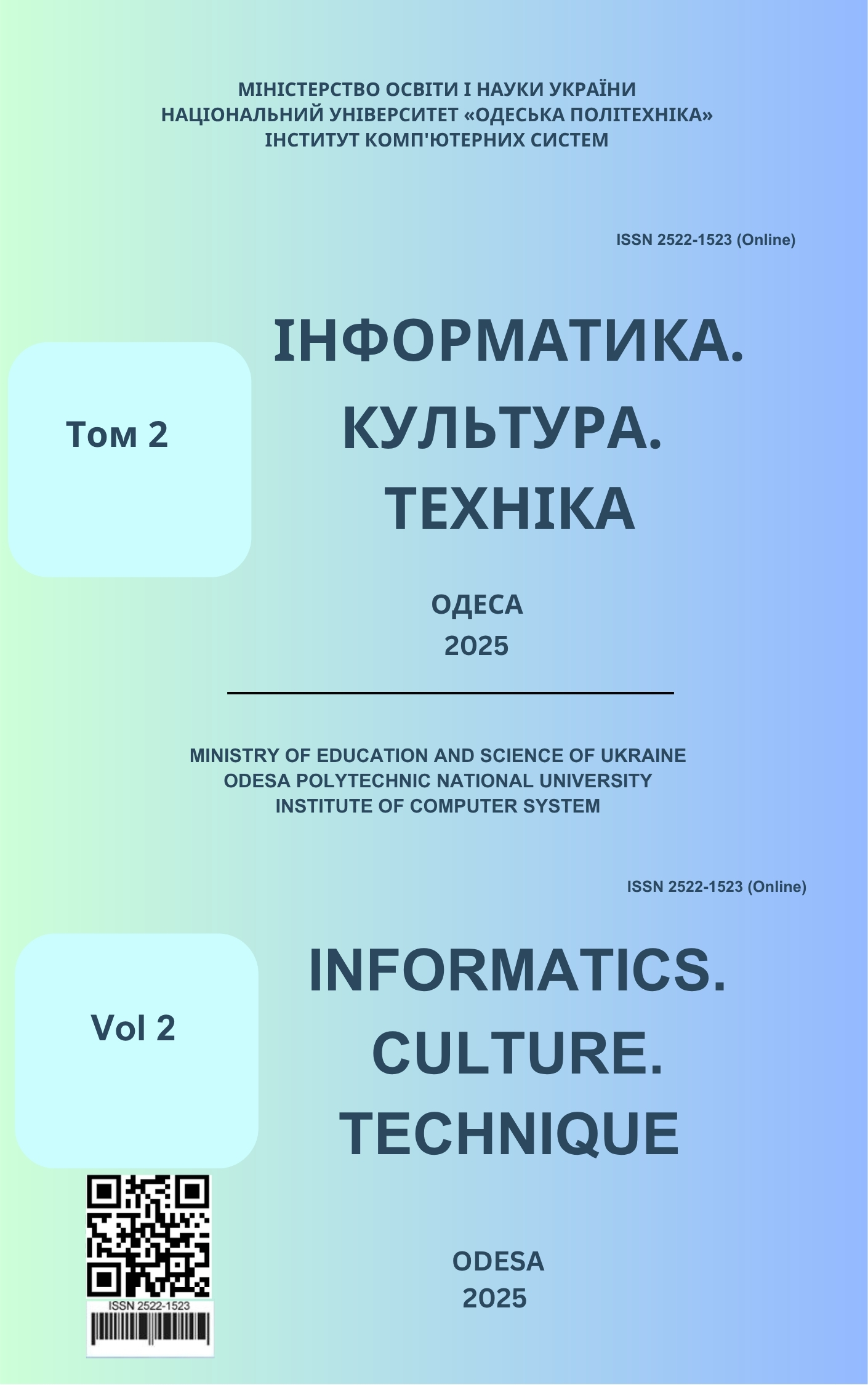Роль цифрових технологій у процесі соціокультурної адаптації біженців
DOI:
https://doi.org/10.15276/ict.02.2025.61Ключові слова:
біженці, цифрові технології, адаптація, інтеграція, соціокультурна інтеграція, онлайн-освіта, мовні бар’єри, міжкультурна комунікаціяАнотація
У статті розглянуто роль цифрових технологій у процесі культурної адаптації біженців у нових соціокультурних середовищах. Підкреслюється, що сучасні цифрові інструменти — онлайн-курси, освітні платформи, соціальні мережі, мобільні застосунки та інтерактивні вебресурси — відкривають широкі можливості для вивчення мови країни перебування, ознайомлення з культурними нормами, традиціями та правовими аспектами життя в новому суспільстві. Особлива увага приділяється ролі цифрових технологій у підтримці емоційного благополуччя та зниженні рівня соціальної ізоляції біженців завдяки створенню віртуальних спільнот, мереж взаємодопомоги та платформ для психологічної підтримки. Зазначено, що використання цифрових ресурсів дає змогу біженцям здобувати нові професійні навички, брати участь у дистанційному навчанні, розширювати соціальні контакти та формувати почуття належності до приймаючої спільноти. Вони стають важливим інструментом подолання культурного шоку та стресу, сприяють швидшому пристосуванню до нових умов, стимулюють розвиток міжкультурної толерантності та взаєморозуміння. Крім того, цифрові технології дозволяють отримувати доступ до актуальної інформації про права, соціальні послуги, можливості працевлаштування, що є важливим чинником у процесі соціально-економічної інтеграції біженців. Разом із тим, у статті проаналізовано ключові виклики, що супроводжують використання цифрових технологій у процесі інтеграції. Серед них — обмежений доступ до технічних засобів і стабільного інтернет-з’єднання, низький рівень цифрової грамотності, мовні бар’єри, інформаційне перевантаження та культурна нерелевантність наявного контенту. Підкреслюється, що без належної адаптації та супроводу цифрові ресурси можуть не лише не сприяти, а й ускладнювати процес інтеграції, створюючи ризики дезінформації, соціального відчуження або хибного сприйняття приймаючого суспільства. Наголошено на необхідності міжсекторальної співпраці між державними структурами, освітніми установами, громадськими організаціями та технологічними компаніями задля створення культурно чутливих цифрових рішень. Такі рішення мають враховувати мовні, освітні, соціальні та психологічні потреби біженців, бути адаптованими до різного рівня цифрової грамотності та поєднувати онлайнінструменти з офлайн-підтримкою місцевих освітніх і громадських інституцій. Зроблено висновок, що комплексне використання цифрових технологій у поєднанні з індивідуальним супроводом, наставництвом і активним залученням біженців до освітніх і культурних програм може суттєво прискорити їхню соціокультурну інтеграцію, підвищити рівень їхньої самореалізації, соціальної мобільності та сприяти формуванню згуртованого, толерантного та інклюзивного суспільства.

